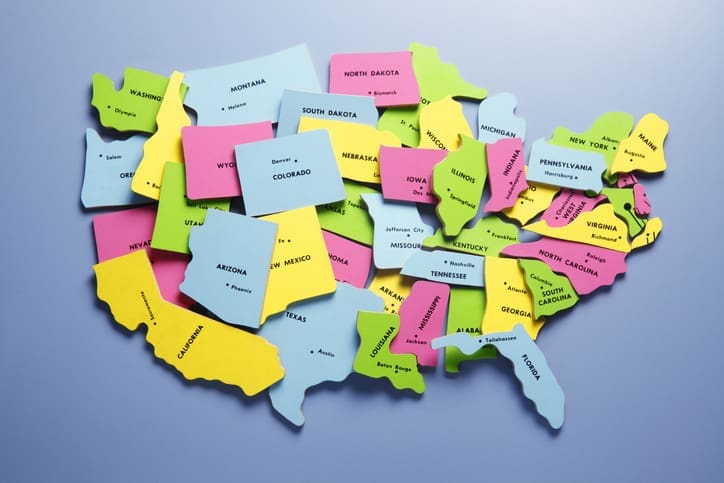Adapting to Changes in Data Privacy Laws
In today’s increasingly privacy-conscious world, data regulation is no longer just a legal department issue—it’s a marketing issue, too. For B2B companies, adapting to evolving data privacy laws isn’t just about checking a compliance box; it’s about maintaining customer trust, protecting brand reputation, and ensuring marketing strategies remain effective in a shifting landscape.
While most of the spotlight on data privacy tends to focus on B2C businesses, B2B marketers are equally affected, especially as privacy laws broaden their scope to include business contacts, not just individual consumers. Here’s a look at the current regulatory environment and how your B2B marketing team can pivot to stay compliant and competitive
Understanding the Current Data Privacy Landscape
As of 2025, the U.S. still lacks a comprehensive federal data privacy law. However, a growing number of state-level laws are shaping how companies can collect, use, and store personal data. California’s CPRA, Virginia’s CDPA, and Colorado’s CPA are just a few examples of laws that grant individuals greater control over their data and place more responsibility on businesses to handle that data ethically.
Many of these laws now include business contacts under their definitions of “personal information,” especially when that information is collected via digital channels—web forms, email tracking, or behavioral data. B2B marketers who rely on intent data, third-party enrichment tools, or lead scoring models need to take a hard look at how they’re sourcing and storing contact data.
The challenge? If your business markets to clients across multiple states, you may be subject to a patchwork of different requirements. What’s compliant in Florida might not fly in California or Colorado. That’s why it’s more important than ever to build privacy-aware practices into your marketing operations at a foundational level.

The Implications for B2B Marketing
B2B marketers traditionally rely on data-driven strategies to identify and engage potential clients. However, the tightening of data privacy regulations necessitates a reevaluation of these approaches.
Shift from Third-Party to First-Party Data
For years, B2B marketers relied heavily on third-party cookies, enrichment vendors, and aggregated intent data to target the right accounts. But as browsers like Chrome phase out cookies and state laws crack down on third-party data usage, we’re seeing a pivot back to first-party data—information you collect directly from your prospects and customers.
This means the value of your website, content offers, webinars, and email subscriptions has skyrocketed. They’re not just channels; they’re now data collection opportunities—ones that come with the added benefit of being more accurate, compliant, and trusted. But they must be managed properly. Your CRM, marketing automation, and data storage tools need to align around clear policies for consent and use.
Transparency, Consent, and Expectation Management
A critical part of the new wave of privacy legislation is giving people control over their data. Even in a B2B setting, your contacts have rights—they can ask what information you’ve collected, how you’re using it, and in some states, they can request deletion.

This creates a demand for more transparent marketing practices. Forms need clear explanations of what someone is signing up for. Cookie banners and email opt-ins can’t be hidden behind confusing language or pre-checked boxes. And if you’re using any kind of behavioral tracking or personalization, you should be upfront about it.
It’s not just a legal issue, it’s a branding one. Companies that demonstrate respect for user privacy often earn more trust, which is a precious commodity in long B2B sales cycles.
The Importance of Data Minimization and Purpose Limitation
Gone are the days of collecting every data point “just in case.” Modern privacy laws emphasize data minimization, only collecting what’s necessary, and purpose limitation, only using data for the reason it was collected.
For B2B marketers, this means revisiting the fields on your lead gen forms, rethinking the data you store in your CRM, and re-evaluating how you segment and target audiences. Instead of bloated datasets, focus on the few critical details that actually inform your campaigns. You’ll not only reduce your legal risk but also improve your operational efficiency.
Strategies for Compliance and Effective Marketing
To navigate the evolving data privacy landscape, B2B companies should consider the following strategies:
1. Conduct Regular Data Audits
Start by mapping your data flow. What are you collecting? Where does it go? Who has access to it? From web forms to customer portals to event registrations, every touchpoint is a potential compliance risk if it’s not properly managed.
Make audits a regular part of your operations, at least annually, or every time you roll out a new tool or campaign. This should include reviewing your privacy policies, cookie usage, vendor relationships, and consent management systems. Look especially closely at third-party tools (like lead enrichment platforms), which may be ingesting or transferring data in ways you can’t easily control.
2. Implement Robust Consent Mechanisms
Build consent into your digital infrastructure. Every lead capture form should include a clear explanation of how the data will be used, ideally linking to your full privacy policy. Avoid passive or misleading consent, such as auto-subscribing someone to a newsletter after they download an eBook.
Implement a preference center where users can manage the types of communications they receive and how frequently. This not only helps with compliance but can also improve your email engagement rates by aligning your messaging with individual preferences.
Don’t forget: Consent needs to be documented. Make sure your marketing automation system tracks and stores the timestamp, context, and content of each consent action.
3. Invest in Privacy Training
Everyone who touches customer data needs to understand how data privacy impacts their role. Marketers should know the difference between implied and explicit consent. Sales teams should understand when it’s appropriate to send follow-up messages and what data they’re allowed to use.
Privacy training shouldn’t be a one-and-done event—it should be part of your onboarding process and reinforced regularly, especially as laws evolve. Encourage a culture where protecting customer data is viewed as part of delivering a quality experience—not a burden.

4. Leverage Privacy-Compliant Technologies
Your martech stack plays a big role in your ability to remain compliant. Invest in tools that offer built-in privacy features—like GDPR/CCPA-friendly consent forms, cookie compliance banners, and secure data storage.
Customer Data Platforms (CDPs), for example, can help unify and manage your first-party data in a compliant way, allowing you to segment audiences and personalize campaigns without overstepping privacy boundaries. Look for vendors that have undergone third-party security audits or offer compliance certifications.
5. Monitor Regulatory Developments
Privacy laws aren’t static. As more states introduce their own rules—and as federal legislation continues to be debated—you’ll need to stay informed and flexible. Subscribe to industry newsletters, attend webinars, and consult legal professionals regularly to stay ahead of new requirements.
If your business operates internationally or targets global accounts, don’t overlook GDPR, Canada’s PIPEDA, or Brazil’s LGPD. Even a single subscriber from outside the U.S. can trigger additional obligations.
Compliance as a Competitive Advantage
At the end of the day, adapting to data privacy laws isn’t just about staying out of trouble. It’s about showing your clients and prospects that you take their trust seriously. In the B2B space, where relationships are built over time and deals involve multiple stakeholders, that kind of credibility goes a long way.
By proactively updating your data practices and embedding privacy into your marketing strategies, you position your company as a trustworthy, modern partner in a privacy-first world. And that’s a message that resonates far beyond compliance checklists.
For personalized guidance on aligning your marketing strategies with evolving data privacy regulations, feel free to reach out to us here at EdwardsShoen.
